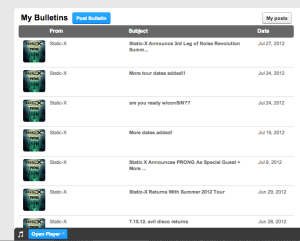People: STOP BLAMING the NRA for the Sandy Hook Elementary School shooting. They did NOT enable or encourage that guy to slaughter nearly 30 innocent people through their “lax” policies. Do you REALLY think that a stricter gun control policy would’ve kept this guy from his sick mission? He was obviously hell-bent on killing those people. He killed his MOTHER, for Christ’s sake. Even with Alcatraz-strict laws, this guy would’ve found a way to do what he did, because, guess what? He was NOT a law-abiding citizen. He had NO regard for human life. What, do you think that he would’ve all of a sudden had some regard for the legal system or human welfare with the placement of a stricter gun law? Wake up–he wouldn’t have.
What SHOULD be the issue on everyone’s mind was how the Hell this guy eluded some sort of psychiatric help for twenty years of his life, because CLEARLY, something was amiss within him. The only thing that would’ve kept this tragedy from occurring is if he were institutionalized, or medicated, or given some help of some kind in some place far away from those children and teachers. These crimes don’t stem from nothing. Read the articles; former teachers from his high school, as well as his own mother, were well aware of his stilted social skills, his great aversion to people, the tantrums he would throw in the middle of class. Adam Lanza’s psychological issues, whatever they may have been, should’ve been addressed years ago. Only THEN could this tragedy have been avoided.
So stop with the blame game, people, because the NRA has about as much to do with Adam Lanza’s choices as you or I do–not one bit.


